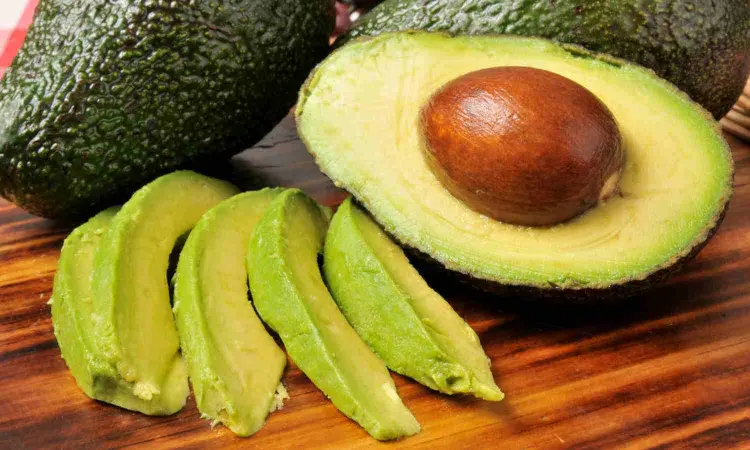- Home
- Medical news & Guidelines
- Anesthesiology
- Cardiology and CTVS
- Critical Care
- Dentistry
- Dermatology
- Diabetes and Endocrinology
- ENT
- Gastroenterology
- Medicine
- Nephrology
- Neurology
- Obstretics-Gynaecology
- Oncology
- Ophthalmology
- Orthopaedics
- Pediatrics-Neonatology
- Psychiatry
- Pulmonology
- Radiology
- Surgery
- Urology
- Laboratory Medicine
- Diet
- Nursing
- Paramedical
- Physiotherapy
- Health news
- Fact Check
- Bone Health Fact Check
- Brain Health Fact Check
- Cancer Related Fact Check
- Child Care Fact Check
- Dental and oral health fact check
- Diabetes and metabolic health fact check
- Diet and Nutrition Fact Check
- Eye and ENT Care Fact Check
- Fitness fact check
- Gut health fact check
- Heart health fact check
- Kidney health fact check
- Medical education fact check
- Men's health fact check
- Respiratory fact check
- Skin and hair care fact check
- Vaccine and Immunization fact check
- Women's health fact check
- AYUSH
- State News
- Andaman and Nicobar Islands
- Andhra Pradesh
- Arunachal Pradesh
- Assam
- Bihar
- Chandigarh
- Chattisgarh
- Dadra and Nagar Haveli
- Daman and Diu
- Delhi
- Goa
- Gujarat
- Haryana
- Himachal Pradesh
- Jammu & Kashmir
- Jharkhand
- Karnataka
- Kerala
- Ladakh
- Lakshadweep
- Madhya Pradesh
- Maharashtra
- Manipur
- Meghalaya
- Mizoram
- Nagaland
- Odisha
- Puducherry
- Punjab
- Rajasthan
- Sikkim
- Tamil Nadu
- Telangana
- Tripura
- Uttar Pradesh
- Uttrakhand
- West Bengal
- Medical Education
- Industry
An avocado a day may improve overall diet quality, researchers report

Eating one avocado per day may improve overall diet quality, according to a team led by researchers in Penn State's Department of Nutritional Sciences. Poor diet quality is a risk factor for many diseases, including heart disease, and many American adults have poor diet quality and do not meet key dietary recommendations provided by the Dietary Guidelines for Americans.
This study was led by Kristina Petersen, associate professor of nutritional sciences, and Penny Kris-Etherton, retired Evan Pugh University Professor of Nutritional Sciences, and recently published in the journal Current Developments in Nutrition. The researchers examined how a food-based intervention-one avocado per day-impacts overall diet quality.
“Avocados are a nutrient-dense food, containing a lot of fiber and other important nutrients. We wanted to see if regular intake of this food would lead to an increase in diet quality,” Petersen said. “Previous observational research suggests avocado consumers have higher diet quality than non-consumers. So, we developed this study to determine if there is a causational link between avocado consumption and overall diet quality.”
Petersen stated that because only 2% of American adults are regular avocado consumers, the researchers wanted to determine if including avocados in an individual’s daily diet could significantly increase their diet quality.
Researchers conducted phone interviews with participants before the study began and at a few points throughout to determine what their dietary intake was like in the previous 24 hours and evaluated their diets using the Healthy Eating Index to determine how well they adhered to the Dietary Guidelines for Americans. Adherence to the guidelines was used as a measure of overall diet quality.
The study consisted of 1,008 participants who were split into two groups. One group continued their usual diet and limited their avocado intake during the 26-week study, while the other group incorporated one avocado per day into their diet.
“We found that the participants who had an avocado per day significantly increased their adherence to dietary guidelines,” Petersen said. “This suggests that strategies, like eating one avocado per day, can help people follow dietary guidelines and improve the quality of their diets.”
Although researchers said they were not surprised to see that eating avocados daily improved diet quality, they had not predicted how participants were able to achieve it.
“We determined that participants were using avocados as a substitute for some foods higher in refined grains and sodium,” Petersen said. “In our study, we classified avocados as a vegetable and did see an increase in vegetable consumption attributed to the avocado intake, but also participants used the avocados to replace some unhealthier options.”
According to Petersen, having poor diet quality substantially increases the risk for conditions like heart disease, type 2 diabetes, kidney disease and many other preventable diseases.
“By improving people’s adherence to dietary guidelines, we can help to reduce their risk of developing these chronic conditions and prolong healthy life expectancy,” Petersen said.
Petersen has also conducted similar studies investigating the impact of food-based interventions, including the relationship between pistachios and diet quality, but said that more research is needed to determine what other food-based strategies can be used to improve people’s adherence to dietary guidelines.
“In studies like this one, we are able to determine food-based ways to improve diet quality, but behavioral strategies are also needed to help people adhere to dietary guidelines and reduce their risk of chronic disease,” Petersen said.
Reference:
Kristina S Petersen, Sydney Smith, Alice H Lichtenstein, Gina Segovia-Siapco, David M Reboussin, Penny M Kris-Etherton, One Avocado per Day as Part of Usual Intake Improves Diet Quality: Exploratory Results from a Randomized Controlled Trial, Current Developments in Nutrition, https://doi.org/10.1016/j.cdnut.2024.102079.
Dr Kamal Kant Kohli-MBBS, DTCD- a chest specialist with more than 30 years of practice and a flair for writing clinical articles, Dr Kamal Kant Kohli joined Medical Dialogues as a Chief Editor of Medical News. Besides writing articles, as an editor, he proofreads and verifies all the medical content published on Medical Dialogues including those coming from journals, studies,medical conferences,guidelines etc. Email: drkohli@medicaldialogues.in. Contact no. 011-43720751


